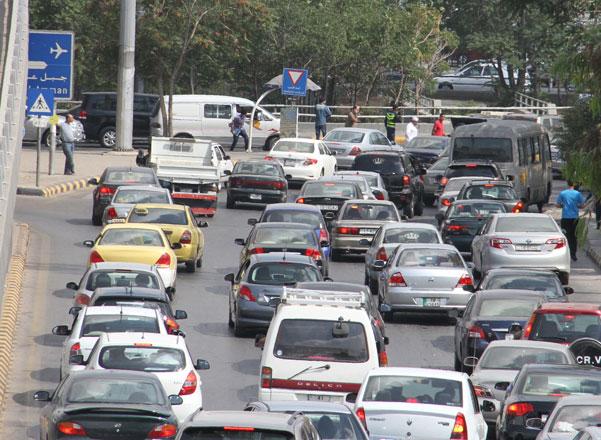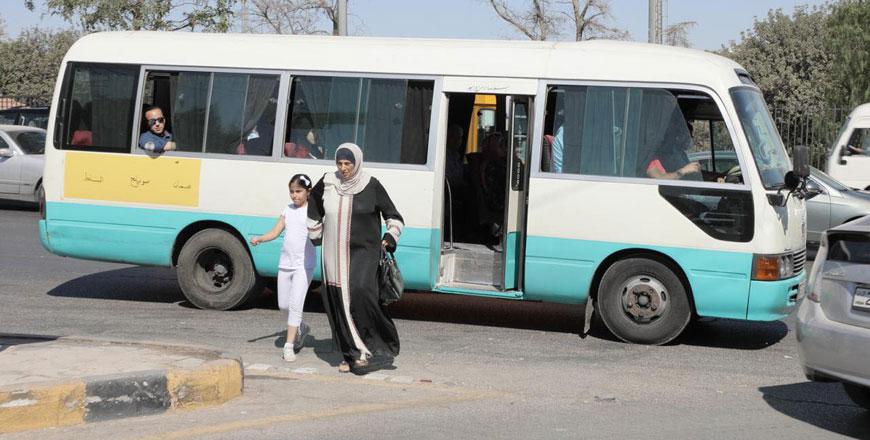You are here
Car ownership in Jordan to soar in upcoming years
By Ana V. Ibáñez Prieto - Apr 09,2018 - Last updated at Apr 09,2018

Despite being relatively small in comparison with other countries, car ownership in Jordan is expected to witness a great increase in upcoming years (Photo by Osama Aqarbeh)
AMMAN — Car ownership in Jordan is expected to witness a significant increase in the upcoming years, a research paper issued by the Jordan Strategy Forum (JSF) said on Saturday.
Based on information available from EuroStat, the study showed that, during the period from 2009 to 2016, Jordan came second regionally in terms of the annual growth rate in the number of owned vehicles, which stood at 6.54 per cent, right after Turkey.
Despite the sustained growth, the number of owned cars in Jordan still appeared small when compared to the ratio per capita, with one vehicle for every five persons.
The JSF research paper determined that “if the Jordanian experience in the near future reflects what has happened in countries such as Finland, Germany, France or even Slovakia, one can only predict the number of owned vehicles per capita to increase in Jordan”, adding that “the growth might be even faster given the lack of good public transportation in the Kingdom”.
Founder of the public transportation advocacy campaign Maan Nasel, Hazem Zureiqat said: “It is not surprising that car ownership has been on the rise in Jordan, as the lack of an effective, reliable public transport system leaves very few mobility options for people,” stressing that “most find themselves forced into buying a car in order to gain access to employment or to be able to get to their university classes on time — and this comes at a hefty price to the individual, the household, the environment and the economy as a whole”.
“Curbing car ownership and use requires a paradigm shift in the way we plan for transport,” Zureiqat told The Jordan Times, adding that “we need a system that is more balanced and multimodal, providing people with viable options that are reliable and affordable”.
For his part, economist Wajdi Makhamreh said: “The unorganised transport scheme and the inability of the government to install a top notch transport system made many Jordanians prefer to own a car,” stressing that “this has made the traffic in Amman unbearable and costly”.
The JSF paper pointed out that “all stakeholders must realise the critical importance of investing sufficiently and efficiently in our infrastructure in general, and in our road network in particular”, adding that “the fact that more than half of the Jordanians live in Amman makes this argument much more critical”.
A previous report by the World Bank assessing the quality of roads in 140 countries highlighted a deterioration of the roads across the Kingdom, with a score falling from 4.85 in 2006 to 3.87 in 2015.
“Again, this reinforces the importance of investing sufficiently and efficiently in our road network,” the JSF said pointed out, predicting that investments would minimise the existing traffic jams and improve the quality of public transport in general.
Makhamreh stressed the need for “a huge project for roads’ maintenance”, calling for an investment fund from the government and aiding countries “to focus on roads and implementing systems that is feasible for Amman and other cities within Jordan”.
Related Articles
AMMAN — The Jordan Strategy Forum (JSF) issued a policy paper titled “Investing in Traffic Safety to Unlock Economic Potential” for the UN c
AMMAN — Like many large cities and capitals, Amman has a heavy traffic problem and the gridlock on the city’s streets is getting worse, acco
AMMAN — Public transportation experts have voiced their concerns over the 100-days challenge set by the premier, warning that “100 days are















